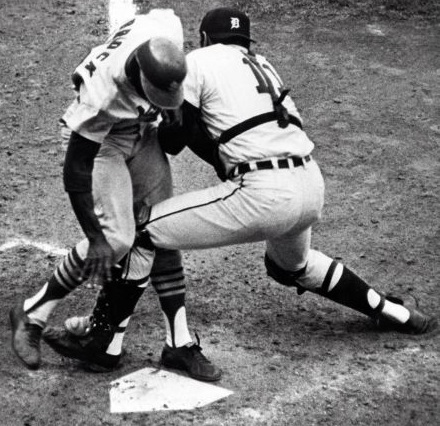How Significant was the 1968 World Series after the 1967 Uprising?
“They made people feel good. They made people smile together for a brief time.”


In 1968 the Detroit Tigers won the World Series. It was one year after the civil unrest that tore open the festering wounds of racial and economic injustice in the city.
Not everyone is a sports fan, but it’s impossible to deny the relief many people felt from watching the Tigers and listening to Ernie Harwell call the games as the team stormed the summer and into the fall.
Sports columnist Pat Caputo wrote this week in the Oakland Press:
“Detroit has experienced many world titles, but there is no more revered team than the ‘68 Tigers. It was arguably the most socially significant championship in professional sports history.”
Is that true?
Joe Lapointe, former New York Times and Detroit Free Press sports reporter, joins Stephen Henderson on Detroit Today to discuss his personal experience of the 1968 World Series, and the symbolic importance of the victory.
Lapointe was an usher at Tiger Stadium as a teenager during the 1968 season. He says as a high school senior it was a best job a kid could have. Lapointe says though the season was exciting, and the victory a big one for an ailing Detroit.
“It’s one of our treasured municipal myths,” Lapointe says about the 1968 World Series victory of the Tigers. “And I use the word myths in the highest sense… as a traditional story of supernatural heroes and great things happening that are hard to explain. As sort of a magic story.”
Lapointe and Henderson talk about other teams that have had great victories following hardship and tragedy, including the victory of the New Orleans Saints winning the Super Bowl in 2010, five years following Hurricane Katrina, and the victory of the 1959 Manchester United soccer team, winning the English Championship the year after the team had been in a plane crash where team members were killed.
Click on the audio player above to hear the full conversation.

